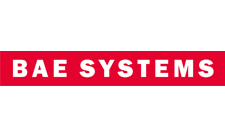An aerospace engineer applies scientific and technological principles to research, design, develop, maintain and test the performance of civil and military aircraft, missiles, weapons systems, satellites and space vehicles. They also work on the different components that make up these aircraft and systems.
The role is focused on enhancing high-quality flight safety and standards as well as reducing system costs. Increasingly, the role addresses the environmental impact of air travel. Aeronautical engineering offers a wide range of roles in research, design, development, testing, manufacture and maintenance. Many engineers specialise in a particular area such as propulsion, computational fluid dynamics, aerodynamics or materials and structures. The aerospace industry is well established in the UK, and constant expansion in air travel means that large numbers of aeronautical engineers are needed.
Defence
In the UK over 300,000 people are employed in the defence industry, working in high-value jobs up and down the country. It is an expanding and well-established industry in the UK so now is a good time to further your career or begin your career in this innovative industry and take advantage of the career prospects on offer.
If you are considering starting a career in defence it is good to start by asking yourself – “what specific portion are you most interested in?” Aerospace, satellites, helicopters, Army, Navy, Air Force, Marines, thermodynamics, design, analysis, production systems and development are just a few of the areas you could find yourself working in if you chose a job in the Defence Sector.
Key articles for grads interested in aerospace and defence
AWE / Nuclear Security Technologies
We are at the forefront of nuclear technology and innovation – always delivering to keep our nation safe and secure. For over 70 years, we have proudly played a role of critical national importance: Helping deliver the UK’s nuclear deterrent, preserve peace, prevent coercion and deter aggression. We are at the forefront of nuclear technology […]
At BAE Systems, we provide some of the world’s most advanced, technology-led defence, aerospace and security solutions. We employ a skilled workforce of 85,800 people in more than 40 countries. Working with customers and local partners, we develop, engineer, manufacture, and support products and systems to deliver military capability, protect national security and people, and […]
Graduates in British Airways have made such a difference to our business; it’s no wonder we’re looking for more. We offer a range of programmes focussed on your development and delivering our vision to be the ‘most admired airline in the world’s key cities’.
Dstl – Defence Science and Technology Laboratory
The Defence Science and Technology Laboratory (Dstl) maximises the impact of science and technology on UK defence and security – across government. We work with the best people with the best ideas – from small companies to world-class universities, large defence companies … even other nations. Together we develop battle-winning technologies, based on deep and […]
easyJet is Europe’s leading airline flying more than 82 million passengers to more than 33 countries! But we’re not just known for our size and innovation, we’re known around the world for their incredible staff who are at the heart of everything we do.
Heathrow Airport is a city within a city. Joining us is a chance to build your career in an organisation that matters to millions. To create great experiences for the 210,000 (and counting) passengers who pass through our doors each day. Life with us means exploring unlimited opportunities. Making a real difference to people who […]
KBR provide consulting, technology, engineering, and construction solutions for a wide range of markets, from aerospace and defence to energy and chemicals to intelligence and beyond. Today, we employ more than 38,000 people globally, with customers in more than 80 countries and operations in 40 countries.
As prime complex weapons contractor to the UK MoD, MBDA design and manufacture some of the most sophisticated technology for our armed forces. We are a multinational group with over 10,000 employees worldwide and offer a variety of opportunities in engineering and business. Our graduate programme allows individuals to move around the business in a […]
The Metropolitan Police Service (MPS) is the territorial police force responsible for law enforcement in Greater London. The Met also has significant national responsibilities, such as co-ordinating and leading on UK-wide national counter-terrorism matters, the protection of the senior members of the British Royal Family and also the protection of members of The Cabinet and […]
Raytheon Company, with 2013 sales of $24 billion and 63,000 employees worldwide, is a technology and innovation leader specialising in defence, security and civil markets throughout the world. With a history of innovation spanning 92 years, Raytheon provides state-of-the-art electronics, mission systems integration and other capabilities in the areas of sensing; effects; and command, control, […]
We are a world-class organisation – and we need world-class graduates to lead our multi-skilled teams. Our challenging officer roles require dynamic people in skills ranging from engineering to nursing, and from air operations to logistics. The training package is first-rate and it’s backed by major lifestyle benefits and extensive travel.















